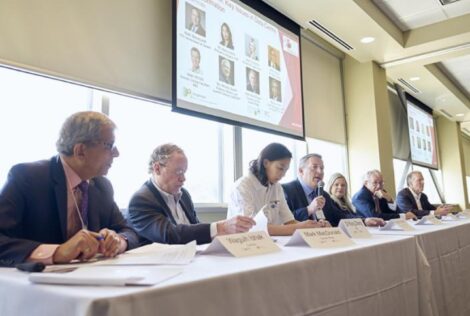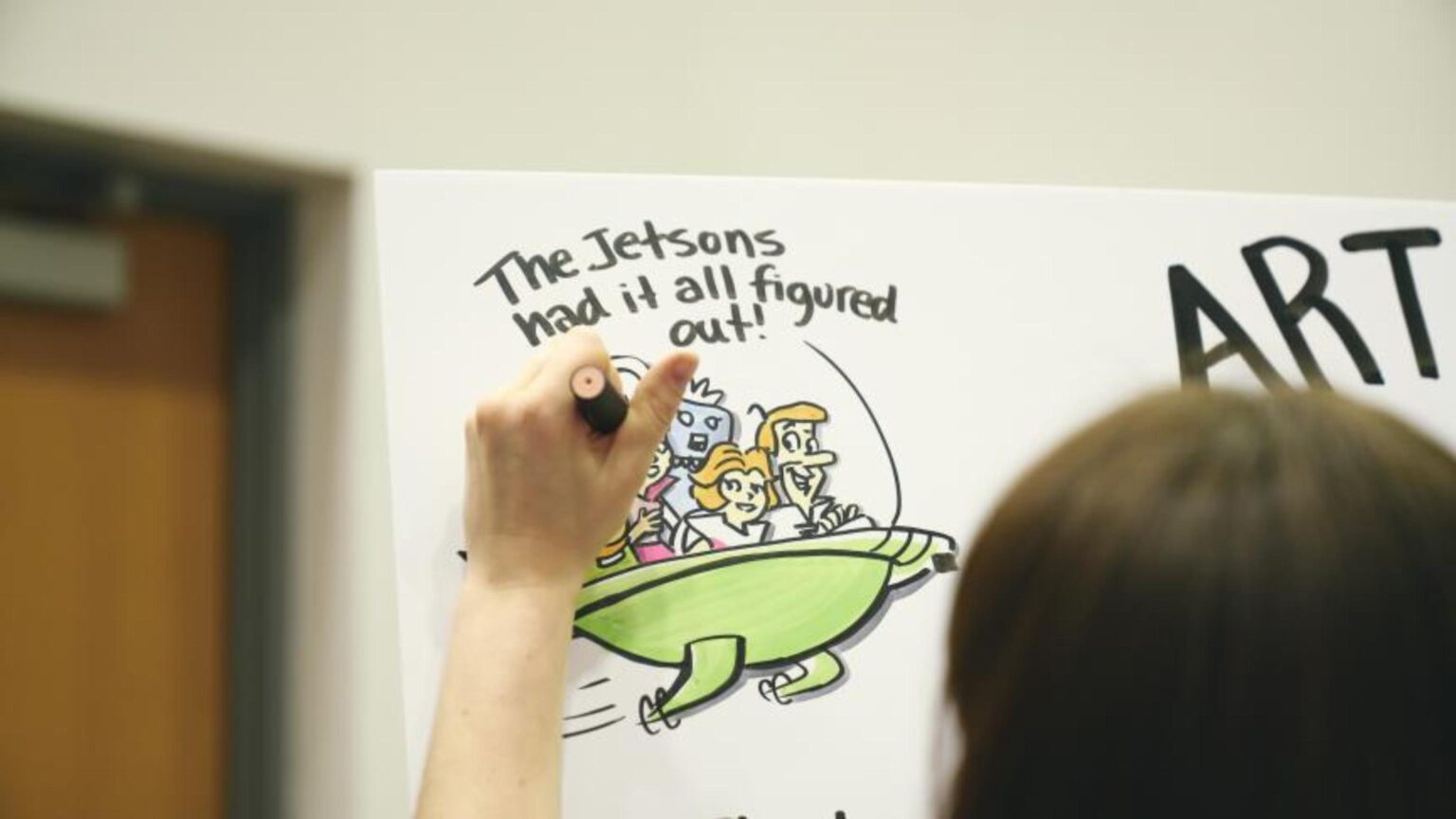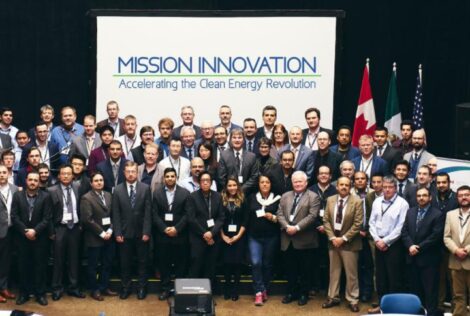

A smiling robot, floating microbes and The Jetsons were just a few of the colourful caricatures depicted by artists during the AI Linker event on March 6.
The caricatures were part of a mural intended to illustrate discussions about artificial intelligence, and the impact it will have on health, engineering and business.
Organized in partnership with the Faculty of Engineering, the DeGroote School of Business and the Michael G. DeGroote Initiative for Innovation in Healthcare, the event brought 150 students, health professionals, researchers and entrepreneurs together at CIBC Hall for a panel discussion and debates.
Attendees listened intently to a panel of five AI experts from various backgrounds that focused on topics such as, how AI will advance companies and individuals and how students can enter a career in AI or data science.
Rong Zheng, Associate Chair of Graduate Study at the Department of Computing and Software at McMaster, described a computational model her colleagues are building that can process big data to help recruit top students.
“The model looks at factors that include academic performance and class attendance to predict whether a student will stay in school,” she explained.
Panellists also discussed how AI algorithms look for key elements that can detect diseases and solve crimes, quickly and easily.
According to Jeff LeJeune, Vice-President, Engineering, at Magnet Forensics, image analysis of photos on someone’s computer or phone can reveal important insights.
“If you can find images of dogs, money and toilets, there’s a 90% chance that is a drug dealer’s phone or computer,” said LeJeune.
For students who want to pursue a career in data sciences or AI, Nassim Tayari, Data Scientist at RBC offered some sound advice; “Be patient in your journey, get hands-on experience, understand the industry you want to work in and communicate effectively.”


